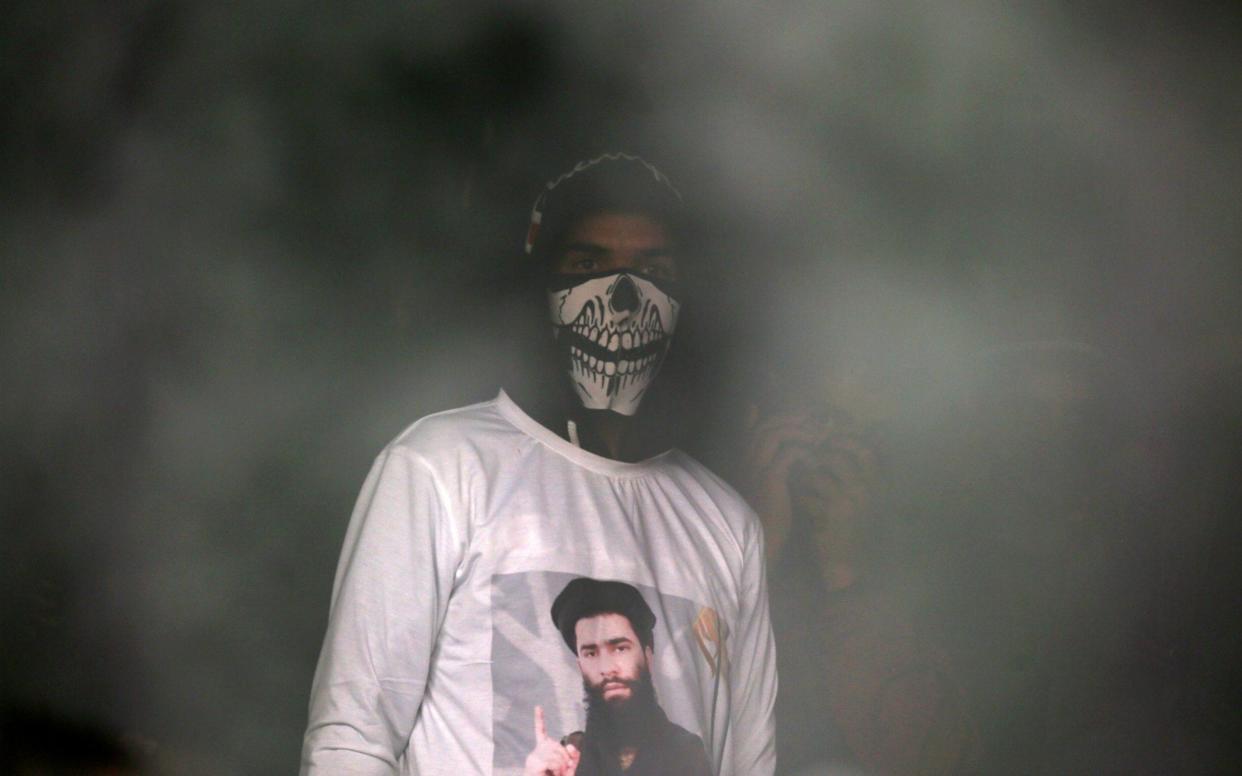Killing of 'most wanted' al-Qaeda linked Kashmir militant sparks protest

Thousands have attended the funeral of a militant leader killed in Indian-administered Kashmir, as security forces cut internet access to stop his death becoming a flashpoint for protests.
Indian forces surrounded Zakir Musa on Thursday evening and blew up his hideout when he refused to surrender.
The influential 25-year-old, who was described as India's most wanted man in Kashmir, split from one of the largest groups fighting Indian rule in Kashmir and declared his allegiance to al-Qaeda in 2017.
His killing immediately triggered protests, with fears they would stoke wider unrest in an area that three months ago took India and Pakistan to the brink of war.
Authorities cut off the internet on mobile phones to hamper anti-India protests and discourage the spread of protest videos. They also imposed a curfew across much of the Kashmir Valley, including in the main city of Srinagar, in anticipation of more clashes. Schools and colleges were told to stay closed.
Musa dropped out of his engineering course in 2013 to join Kashmir's largest militant group Hizbul Mujahideen (HM) fighting Indian rule. He later became part of a group led by charismatic militant Burhan Wani.

Wani's death in 2016 sparked outrage in the territory and rekindled a militant movement that had withered in later years. More than 100 civilians died in violence after Wani's death and Musa took his place.
However Musa then broke away to form Ansar Ghazwat-ul-Hind, which officials say was an offshoot of Al-Qaeda in Kashmir.
Musa regularly issued audio messages declaring Kashmir's struggle was for the Islamic cause and had nothing to do with nationalism. The message reflected a shift in ideology for a region where militants have mainly fought for either the independence of Indian-administered Kashmir or a merger with Pakistan.
Kashmir has been at the heart of tensions between India and Pakistan since Independence in 1947. The former princely state is divided between the two by a heavily militarised line of control, but both claim the whole territory.
Rebel groups have been fighting against Indian rule since 1989. Nearly 70,000 people have been killed in the armed uprising and the ensuing Indian military crackdown.

 Yahoo News
Yahoo News 
